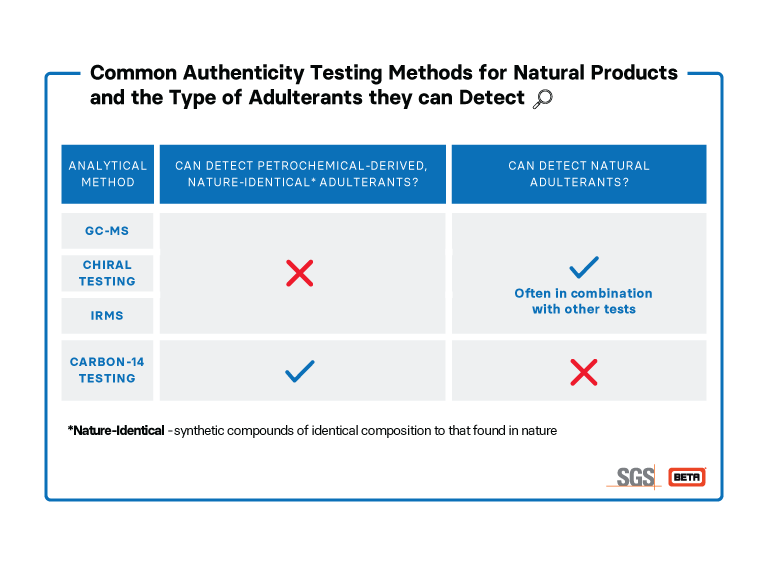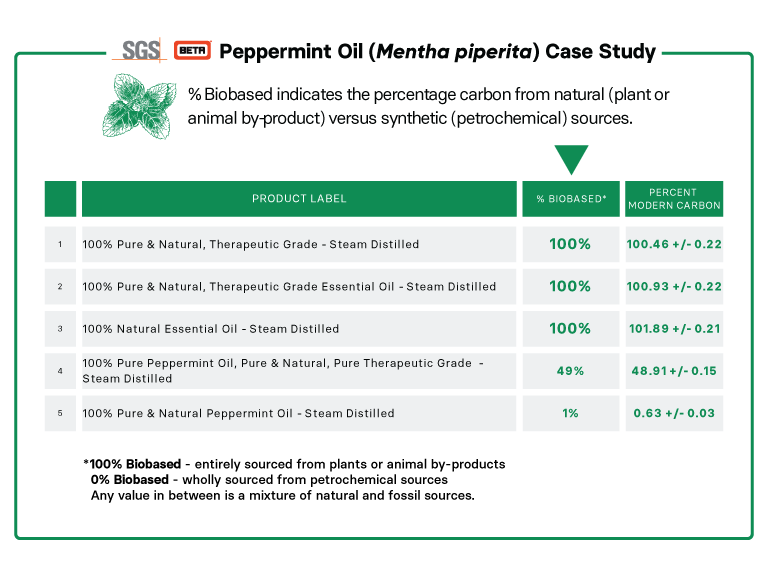Natural vs Synthetic Peppermint Oil – How to Screen for Adulteration
In a recent issue of Perfumer & Flavorist, Beta Analytic Marketing Specialist Haley Gershon described how carbon-14 analysis can be used to screen for synthetic petrochemical-derived adulterants in essential oils like peppermint oil.
Carbon-14 testing enhances an essential oil manufacturer’s quality control measures by providing data that cannot be supplied by other tests often used to detect adulteration. It provides analytical evidence that an essential oil is wholly sourced from biomass or contains petrochemical-derived ingredients or a mixture of both.

The method cannot identify the specific adulterants. It can only provide the percentage of the essential oil that comes from biomass (e.g. from plants or animals). If the essential oil has been adulterated with ingredients that are also sourced from biomass, carbon-14 testing is unable to distinguish or measure the percentage of the biomass-sourced adulterant in the material.
Peppermint Oil Case Study
Beta Analytic tested five commercially available peppermint oils from different manufacturers. All five products claim to be “100% natural peppermint oil”. Based on the lab’s carbon-14 analysis results, only 3 of the products are 100% naturally sourced and have no evidence of synthetic petrochemical adulteration. One product is 49% natural while the other product is only 1% natural.

Carbon-14 test results are reported as % biobased carbon. A value of 100% biobased carbon would indicate that 100% of the carbon came from plants or animal by-products (biomass) living in the natural environment. A value of 0% biobased carbon would mean that all of the carbon was derived from petrochemicals, coal and other fossil sources. A value between 0-100% would indicate a mixture; the higher the value, the greater the proportion of naturally sourced components in the material.
For more information, please read Beta Analytic’s article “Authentication of Peppermint Oil” published in Perfumer & Flavorist Volume 44 March 2019 issue.
Carbon-14 Testing Laboratory Beta Analytic
Based in Miami, Florida, ISO 17025-accredited Beta Analytic provides fast, high-quality natural versus synthetic testing of essential oils by carbon-14 analysis. The lab has extensively worked on essential oils, flavors and supplements, among others. For inquiries on turnaround time or prices, please contact the lab using this form.
This entry was posted on Friday, March 15th, 2019 and is filed under Beta Analytic Case Studies, Beta Analytic Updates, Essential Oil Testing, Flavor & Fragrance, Natural Product Testing .